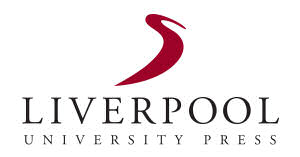
Classics or classical studies is the study of classical antiquity. In the Western world, classics traditionally refers to the study of Classical Greek and Roman literature and their related original languages, Ancient Greek and Latin. Classics also includes Greco-Roman philosophy, history, archaeology, anthropology, art, mythology and society as secondary subjects.

The Battle of Brunanburh was fought in 937 between Æthelstan, King of England, and an alliance of Olaf Guthfrithson, King of Dublin; Constantine II, King of Scotland; and Owain, King of Strathclyde. The battle is sometimes cited as the point of origin for English national identity: historians such as Michael Livingston argue that "the men who fought and died on that field forged a political map of the future that remains, arguably making the Battle of Brunanburh one of the most significant battles in the long history not just of England, but of the whole of the British Isles."
Medieval studies is the academic interdisciplinary study of the Middle Ages. A historian who studies medieval studies is called a medievalist.
Literae humaniores, nicknamed classics, is an undergraduate course focused on classics at the University of Oxford and some other universities. The Latin name means literally "more human literature" and was in contrast to the other main field of study when the university began, i.e. res divinae, also known as theology. Lit. hum., is concerned with human learning, and lit. div. with learning treating of God. In its early days, it encompassed mathematics and natural sciences as well. It is an archetypal humanities course.

William George Hoskins was an English local historian who founded the first university department of English Local History. His great contribution to the study of history was in the field of landscape history.

Liverpool University Press (LUP), founded in 1899, is the third oldest university press in England after Oxford University Press and Cambridge University Press. As the press of the University of Liverpool, it specialises in modern languages, literatures, history, and visual culture and currently publishes more than 150 books a year, as well as 34 academic journals. LUP's books are distributed in North America by Oxford University Press.
Alan Ralph Millard is Rankin Professor Emeritus of Hebrew and Ancient Semitic languages, and Honorary Senior Fellow, at the School of Archaeology, Classics and Egyptology (SACE) in the University of Liverpool.
Elaine Fantham was a British-Canadian classicist whose expertise lay particularly in Latin literature, especially comedy, epic poetry and rhetoric, and in the social history of Roman women. Much of her work was concerned with the intersection of literature and Greek and Roman history. She spoke fluent Italian, German and French and presented lectures and conference papers around the world—including in Germany, Italy, the Netherlands, Norway, Argentina, and Australia.
Digital classics is the application of the tools of digital humanities to the field of classics, or more broadly to the study of the ancient world.
Howard M. R. Williams is a British archaeologist and academic who is Professor of Archaeology at the University of Chester in England. His research focuses on the study of death, burial and memory in Early Medieval Britain.
Roger J. H. Collins is an English medievalist, currently an honorary fellow in history at the University of Edinburgh.

Michael James Swanton is a British historian, linguist, archaeologist and literary critic, specialising in the Anglo-Saxon period and its Old English literature.
John D. Niles is an American scholar of medieval English literature best known for his work on Beowulf and the theory of oral literature.

Julia Catherine Crick, is a British historian, medievalist, and academic. She is Professor of Palaeography and Manuscript Studies at King's College London.
Diana Jane Spencer is an Irish classical scholar. She is Professor of Classics and dean of liberal arts and natural sciences at the University of Birmingham. Her research focuses on how ancient Romans articulate and explore their own identity.
Professor Lynette Gail Mitchell is Professor in Greek History and Politics at the University of Exeter. Mitchell is known for her work on ancient Greek politics and kingship.

Fiona McHardy is a Professor of Classics and also the Head of History and Classics in the School of Humanities and Social Sciences at the University of Roehampton. In 2003 she started work at Roehampton where she was responsible for building up the BA Classical Civilisation. Her research interests include ancient and modern Greek literature, folk poetry, anthropology and culture. She teaches modules on ancient Greek language, literature and culture.
John Frederick Haldon FBA is a British historian, and Shelby Cullom Davis '30 Professor of European History emeritus, professor of Byzantine history and Hellenic Studies emeritus, as well as former director of the Mossavar-Rahmani Center for Iran and Persian Gulf Studies at Princeton University.
The lists of English translations from medieval sources provide overviews of notable medieval documents—historical, scientific, ecclesiastical and literary—that have been translated into English. This includes the original author, translator(s) and the translated document. Translations are from Old and Middle English, Old French, Irish, Scots, Old Dutch, Old Norse or Icelandic, Italian, Latin, Arabic, Greek, Persian, Syriac, Ethiopic, Coptic, Armenian, Hebrew and German, and most works cited are generally available in the University of Michigan's HathiTrust digital library and OCLC's WorldCat. Anonymous works are presented by topic.









